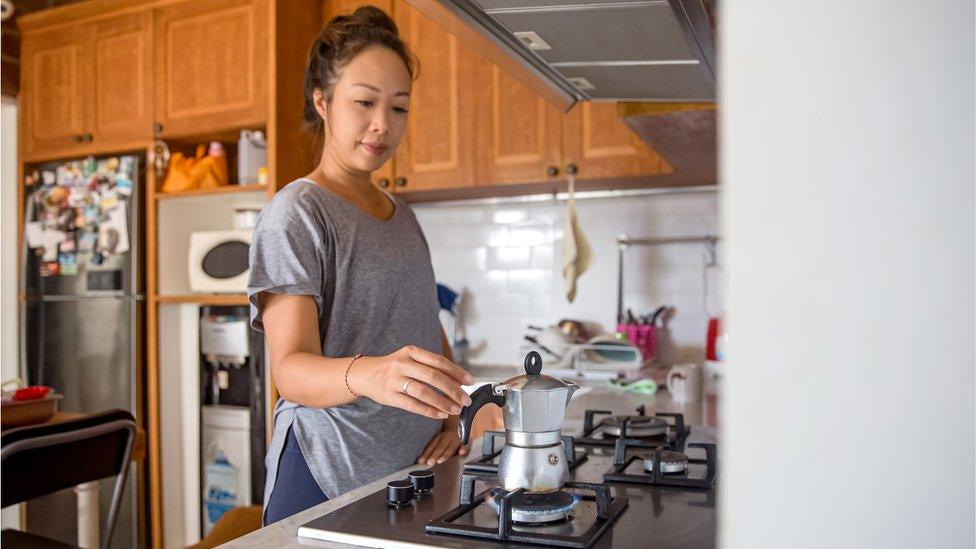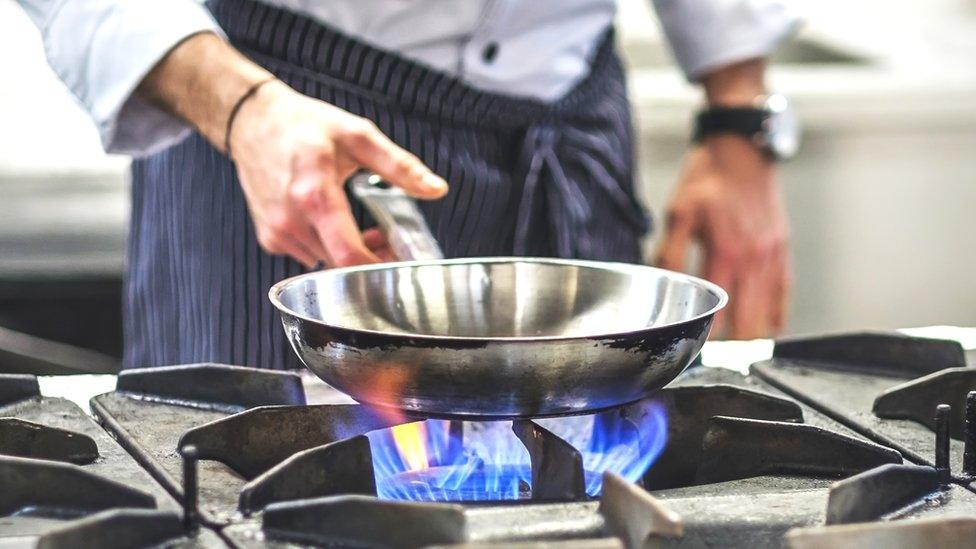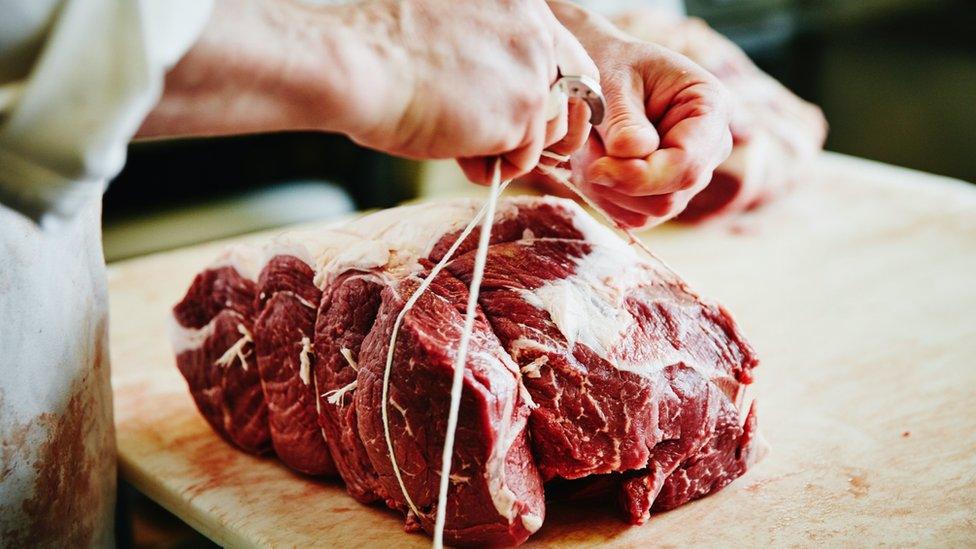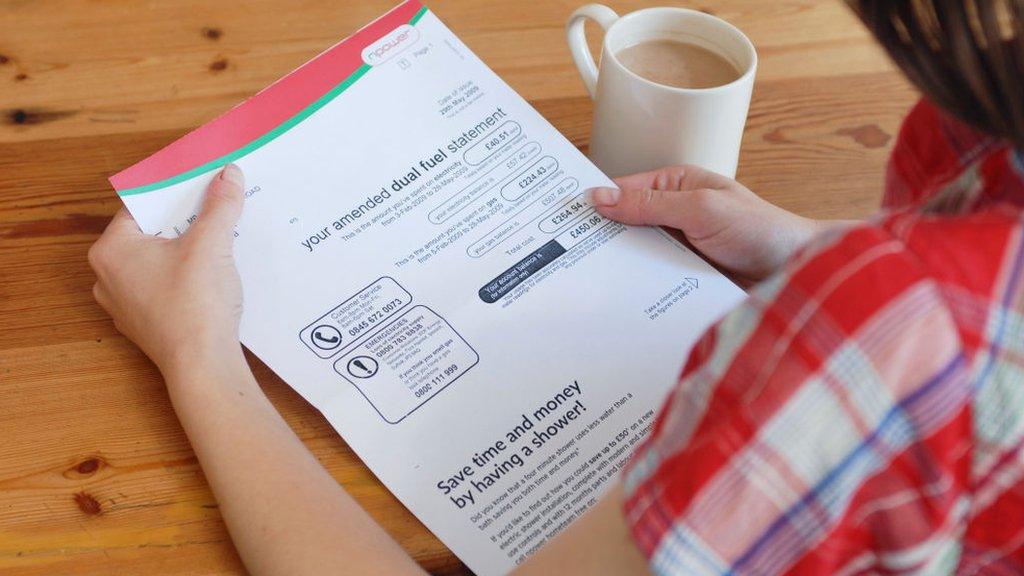Gas price rise: 'UK not seeing risks to supplies right now'
- Published

Households are protected against gas price rises, says Alok Sharma
A spike in wholesale gas prices will not result in goods shortages or price hikes for customers in the UK, a climate change minister has said.
COP26 president Alok Sharma said: "We do not see risks of supplies right now and prices are being protected."
He said Business Secretary Kwasi Kwarteng was continuing talks with energy suppliers over the weekend.
High global demand, maintenance issues at some gas sites and lower solar and wind output are blamed for the rise.
Supermarkets and food firms say the gas price rise has caused a shortage of carbon dioxide which is threatening UK supplies of meat and fresh produce.
Mr Sharma told the BBC's Andrew Marr Show that people should not be concerned about the risks of gas supply.
"Of course, when it comes to prices there will be concern as well," he said.
"We have the energy price cap, we have the warm homes discount, to protect people at this particular time."
Industry group Oil & Gas UK said wholesale prices for gas are up 250% since January - with a 70% rise since August.
The Department for Business, Energy and Industrial Strategy (BEIS) reported that in 2020, 60% of the UK's natural gas supply was imported.
Mr Sharma said: "A significant part of our gas supply comes domestically. The imported gas primarily comes from countries like Norway so we are securing that."
He said the situation showed that the UK needed to do "even more in terms of renewables."
"That's how we ensure you have a clean energy mix and you have security of supply in our country," he said.
'Food shortages'
The gas price hike has caused two large fertiliser plants to shut down - which created knock-on shortages of its by-product CO2.
CO2 is used to stun animals before slaughter, as a coolant agent in transport and as a shelf life extending agent in food packaging.
BBC business correspondent Emma Simpson said one supermarket boss told her that unless the shortage is resolved the UK could start to see shortages of meat on shelves by the end of next week.
Another retailer said the situation was "escalating very quickly" and some poultry suppliers had only two to three days of CO2 supplies left.
Ian Wright, from the Food and Drink Federation industry body, said shoppers would notice a shortage of some products in the next two weeks.
"We will see gaps on shelves fairly soon," he said. "We will not run out of food.
"But there are going to be major concerns about the continuing of supply both to supermarkets and convenience stores and restaurants and takeaways."
Andrew Opie, director of food and sustainability at the British Retail Consortium called for the government to "urgently sort this problem out".
"Otherwise we are going to see problems for consumers both immediately and in the run-up to Christmas," he said.
'Unprecedented crisis'
Greg Jackson, chief executive of Octopus Energy - one of the UK's six largest providers - said this was "the most extreme energy market in decades".
Small energy companies were "facing an unprecedented crisis", he told BBC Radio 4's Broadcasting House programme.
"Behind this are millions of customers and thousands of people whose jobs are going to be affected."
But he said energy providers and the government would be doing everything they could to stop household bills from rising.
He said: "The price cap means that the standard variable tariffs are actually way below the cost of supplying energy today."
The energy cap is the maximum price suppliers can charge customers on a standard - or default - tariff.
Meanwhile, shadow economic secretary to the Treasury, Pat McFadden, said the issue "should have been foreseen".
He told Sky News's Trevor Phillips on Sunday programme: "This should act as a spur to get on with the transition to net-zero, more renewable and sustainable supplies because the effect of all this will be rising prices for consumers just when they're being hit with other things too."
- Published18 September 2021

- Published17 September 2021

- Published9 September 2021

